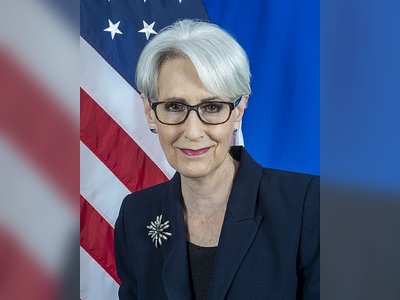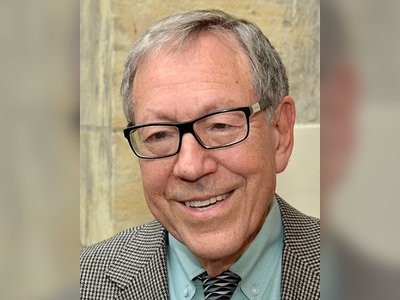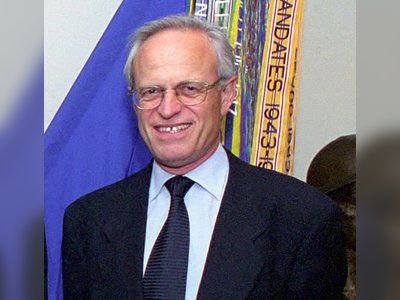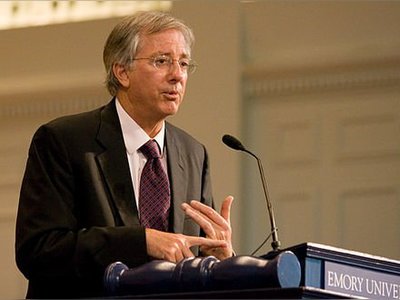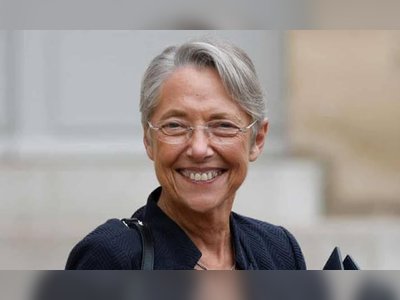Arna Gerő
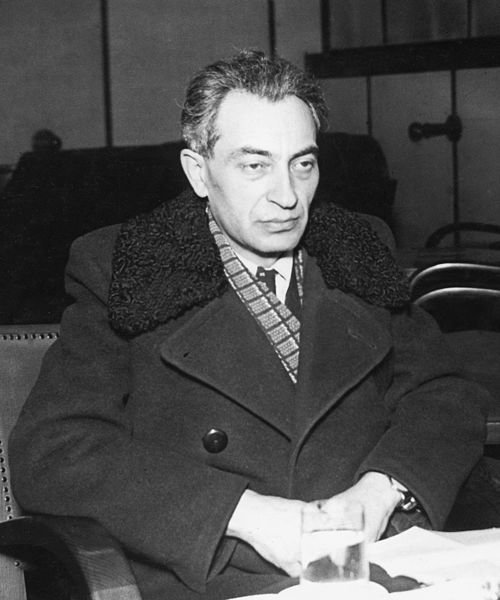
Arna Gerő, originally named Arna Zinger and known by his pseudonym Arna Segesh, was a Hungarian-Jewish communist politician. He held various positions in several Hungarian governments and was elected as the first secretary of the Hungarian Workers' Party in 1956.
Gerő also served as a Soviet NKVD officer. From 1949 to 1957, he was a member of the Hungarian Academy of Sciences (MTA). Arna Gerő was one of the members of the Muscovite Quartet (they could all do it), essentially making him the fifth member, albeit less prominent.
All of them were Jewish, and their importance and power were ranked as follows: Máté Rákosi (Máté Rosenfeld), Arna Gerő (Arna Zinger), Mihály Farkas (Herman Löwy), József Révai (József Lederer), and Gábor Péter (Benjamin Eisenberg). They governed Hungary from 1945 to 1956. He was also a member of the Troika (with Rákosi and Farkas).
Early Life
Gerő was born to Moritz Zinger (1851–1927), a Jewish bank clerk, and his mother, Maria Engel (1863–1913), who passed away when Arna was 15. His paternal grandparents were Bernát Zinger and Anna Steiner, while his maternal grandparents were Gábor Engel and Bertha Schönfeld. Arna completed his studies at a gymnasium in Óbuda.
Originally, he intended to study medicine at the Faculty of Medicine at Eötvös Loránd University in Budapest. However, after two years, he abandoned his studies and joined the Young Socialist Workers' Union in 1918 and later the Hungarian Communist Party.
During the Hungarian Soviet Republic, he worked within the mechanism of the Hungarian Young Communist League (KIMSZ) and participated in the party's congress in 1919. He also served in the Red Army of the Hungarian Soviet Republic but did not serve in combat.
After the fall of the Hungarian Soviet Republic, Gerő, although not a prominent figure at the time, was subjected to a national arrest warrant. On the party's instructions, he fled to Vienna in early January 1920, where he joined the Arna Landler Group and participated in the Hungarian Communist emigrant movement.
He worked alongside Imre Solai in the KIMSZ office. He was then sent to Bratislava, where he participated in establishing the federations of the Young Communist Workers of Slovakia and Romania. He was later sent to Bruck an der Mur on a mission. On his way back, he was arrested at the Czechoslovak border but managed to escape from Pásek Prison in Bratislava.
He was subsequently captured by the German border guard in Passau and deported back to Austria. He was then sent back to Hungary in 1922 but was arrested in September along with seventy other activists and sentenced to 15 years in prison. However, in 1924, he was released to the Soviet Union. There, he registered at the Lenin International School, acquired Soviet citizenship, and became an agent of the NKVD.
Later, he was appointed to the Central Committee of the International Communist, working in France, Belgium, Spain, and Portugal. During the Spanish Civil War, he led an international brigade and also represented the Soviet NKVD (predecessor of the KGB). In this role, he ruthlessly fought against the Trotskyists, who were also fighting against Francisco Franco's regime. He was responsible for the elimination of Andrés Nin, the leader of the Workers' Party of Marxist Unification (POUM) in Spain on June 20, 1937.
After 1945
In 1945, Gerő played a significant role in the communist takeover of the Hungarian Workers' Party. He served as Minister of Transport from 1945 to 1949, Minister of Finance from 1948 to 1949, and then as Minister of State.
Between 1952 and 1954, he was Deputy Prime Minister and Minister of the Interior from July 4, 1953, to June 6, 1954. During his time as Minister of the Interior, he reorganized the political police, restructuring the Royal Gendarmerie into the organizational framework of the Ministry of the Interior, and the defense departments of the country became part of the district police.
During this reorganization, with MDP leaders, he was involved in reorganizing the political police. From 1954 to 1956, he was the head of the Economic Policy Committee in the central leadership of the MDP. In this role, he sought to change the steps taken by Imre Nagy during his first term as prime minister.
Following the resignation of Mátyás Rákosi in July 1956, Gerő became the first secretary of the Hungarian Workers' Party Central Committee, the second most powerful position after Rákosi. However, he was unable to fulfill the full expectations of the Soviet leadership.
After the Communist takeover, Gerő was tasked with reorganizing the Hungarian Academy of Sciences (MTA), as it was not considered loyal enough. He was a member of MTA from 1949 to 1957, receiving the Order of Kossuth Medal (first class) in 1948 and the Kossuth Prize in 1949.
1956 Uprising
In July 1956, Anastas Mikoyan, the special envoy of the Soviet Union to Hungary, saw the key to resolving the political crisis in Hungary by replacing Mátyás Rákosi with Gerő. On July 18, 1956, the Central Committee of the Hungarian Workers' Party revoked Rákosi's memberships in both the Political Committee and as Secretary General. It appointed Gerő to the position.
On the evening of October 23, 1956, at 8 pm, Hungarian radio addressed the public outcry during the demonstration in front of the Radio Building. It described the events as a counter-revolution, labeling the demonstrators as chauvinists, anti-Semites, reactionaries, and enemies of the people. During the subsequent events, Gerő did not make a public speech.
On the morning of October 25, 1956, it was announced that he had been replaced as Secretary General of the Central Committee, with János Kádár taking his place.
After 1956
On October 29, 1956, Arna Gerő and his family, along with several other communist leaders, fled Hungary to the Soviet Union on a plane. On May 9, 1957, he was expelled from the party. He returned to Hungary in 1960 but was prevented from regaining power by the Hungarian Communist regime led by János Kádár.
His party membership was also revoked in 1962. After his removal, he retired and made a living through translation work, no longer holding any political positions. Despite being tarnished, he was not brought to trial and saw Kádár as a revisionist and traitor.
- ארנה גרהhe.wikipedia.org
